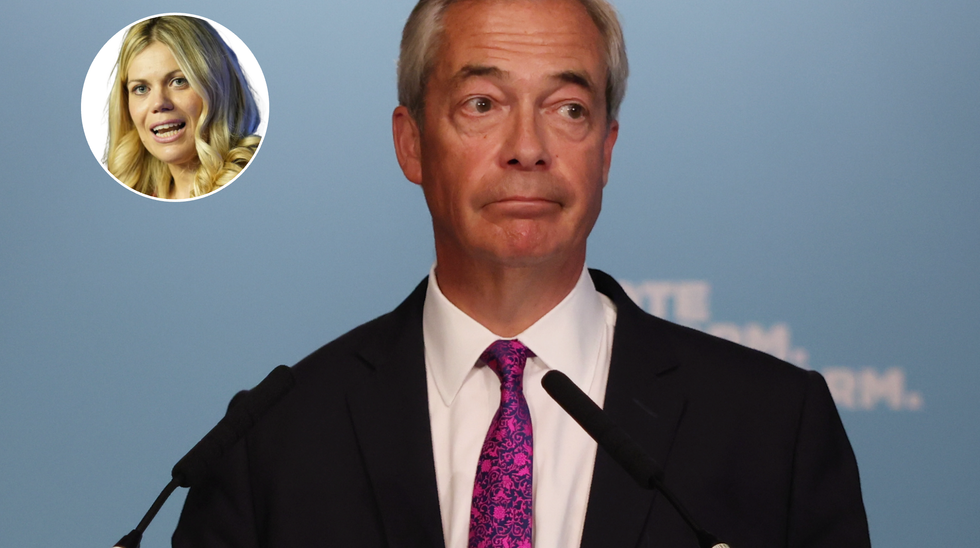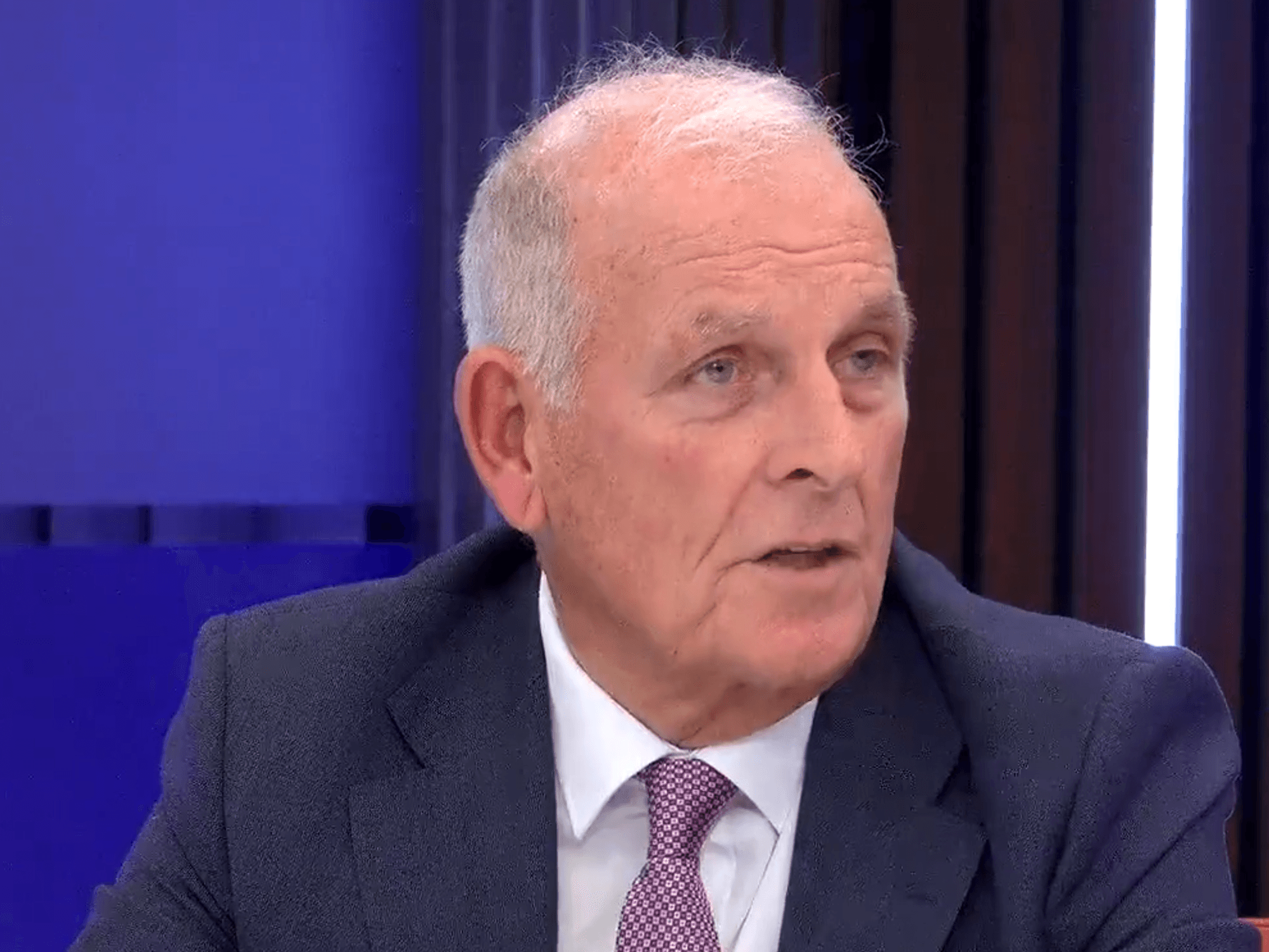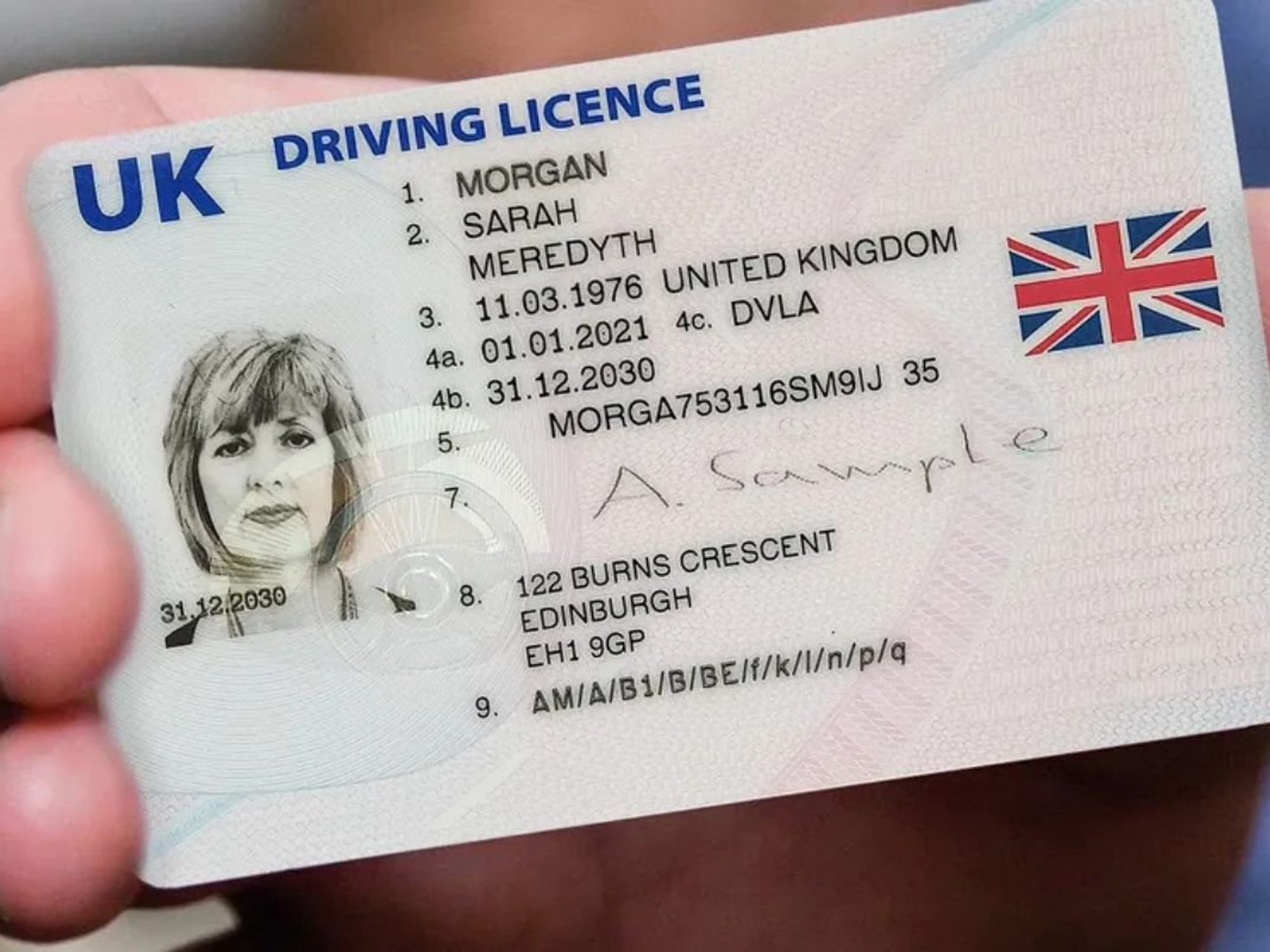Nigel Farage's sums may not add up - but he stands virtually alone in recognising a stark truth about Britain - Miriam Cates

GB
OPINION: Just as governments plan for future energy needs or defence capabilities, they must also plan for the future supply of people
Don't Miss
Most Read
Trending on GB News
Nigel Farage is being accused by his political opponents of indulging in fantasy economics. His newly announced plans — sweeping tax cuts and the scrapping of the two-child benefit limit — raise serious questions about affordability.
The Reform leader says he will pay for these policies by slashing spending on things like diversity officers and net zero initiatives, yet these cuts would be unlikely to save anywhere near enough to cover the costs of his proposed reforms.
But four years out from a general election, arguments about precise costings are perhaps less important than the political direction they indicate. Reform’s emerging policy platform suggests that Farage is willing to address the deep structural issues that Britain’s main parties have ignored for far too long.
Most notable is his focus on the family. Among all major political figures, Farage stands virtually alone in recognising a stark truth: Britain’s collapsing birthrate is one of the biggest threats to our nation’s future.
And the cost of living for families with children has risen so high that it is now directly that young couples are delaying having children, or deciding not to have them at all, because they simply cannot afford it.

Nigel Farage's sums may not add up - but he stands virtually alone in recognising a stark truth about Britain - Miriam Cates
|Getty Images
Reform UK, under Farage’s leadership, appears to be the only party willing to confront the long-term consequences of this demographic decline. As Party Chairman Zia Yusuf recently highlighted, Britain’s fertility rate is well below replacement level and falling.
Just as governments plan for future energy needs or defence capabilities, they must also plan for the future supply of people. Our entire economic model — from pensions to the NHS to the welfare state — relies on a stable or growing working-age population. In the 1980s, there were ten 20-year-olds for every six 60-year-olds. Today, that figure has fallen to just five 20-year-olds for every six 60-year-olds. The inevitable result of this demographic decline is anaemic economic growth and increasing pressure on working people to support an ageing population.
Back in 1972, each pensioner’s costs were spread across 4.5 workers. Today, only three workers share that burden. By 2070, the ratio will fall below two workers to each person of pension age. The situation is no fault of today’s pensioners, but it is nevertheless unsustainable.
Families with young children bear the brunt of this pressure. They face the highest costs — housing, food, childcare, clothing — at the same time as at least one parent takes a significant cut to their income. And yet the British tax system does almost nothing to ease their burden. Unlike many OECD countries, Britain does not allow parents to be taxed jointly or to claim meaningful tax allowances for children. The result is that British families pay, on average, 30% more tax than their counterparts elsewhere.
It's a well-worn cliché to say that people shouldn’t have children unless they can afford them. But when housing costs are sky-high, and the state takes such a large share of income, not to support your family, but to fund services for strangers, the private dream (and public necessity) of parenthood becomes out of reach for many.
Some older voters object to more generous allowances for children, pointing out that they raised their own children without help from the state. But the reality is that economic conditions have changed beyond recognition over the last half century. House prices relative to income have tripled since the 1970s. Back then, families received child tax allowances, and married couples received generous tax allowances. University was free.
Today’s young families face student debt, high rent or mortgage payments, and a tax system that penalises them for having children. If tax allowances and housing costs from the 1980s were applied today, an average single-income family with three children in 2025 would be nearly £10,000 a year better off. No wonder so many families have to rely on Universal Credit to survive.
And it’s no surprise that many are choosing not to have children at all. But the consequences of this are stark. Without a growing population, our debt-to-GDP ratio — already close to 100% — is projected to reach 270 per cent by the mid-2070s. To pay pension costs and keep the labour force afloat, high immigration will be necessary, with forecasts suggesting that by 2070, one in three people living in Britain will not have been born here.
For years, political leaders have ignored this demographic time bomb. Farage’s offer of help to young families is not a silver bullet, but it is a vital first step. Most significantly, he’s willing to acknowledge that marriage matters. Reform UK proposes restoring the married couples’ tax allowance, recognising that marriage is the strongest predictor of family stability. Nearly half of UK teenagers have experienced parental separation. Yet the marriage effect is so profound that for those teens whose natural parents are still together, there’s an 84% chance that those parents are married. For children, family breakdown is often accompanied by lifelong impacts on mental and physical health, educational attainment and income. And the annual cost for the taxpayer is estimated to be over £64 billion.
Farage is also going further, proposing to scrap the two-child benefit cap introduced by George Osborne in 2017. Critics like to paint Farage as a populist who is willing to say anything for votes. But in this case, polling suggests the two-child benefit cap us a popular policy and only 28 per cent of Britons agree that it should be abolished.
So why is Reform UK proposing such an unpopular reform? Perhaps the aim is to turn the screws on Labour, whose backbenchers are threatening to rebel on this issue. The more generous explanation is that Farage understands the harsh reality of today’s financial conditions for working families. Most households affected by the two-child cap are not “scroungers” but working people on low incomes — the very same people who, in earlier generations, would have relied on tax allowances and affordable housing to raise their children.
Today, they have none of that. Yet we expect them privately to bear the cost of raising the next generation. Government policies have wide-ranging consequences: consider the sizable impact of tax rules intended to cut smoking rates or increase electric vehicle ownership. If the state characterises children not as a public good but as a burden to the state, is it any wonder that attitudes have shifted?
Britain’s current political and economic problems stem from the unwillingness of successive governments to plan for the long term. It is far easier for political leaders to give people what they want right now – spending on healthcare, welfare and pensions – than to make the case for diverting resources to projects that will bear fruit in the future.
Boosting the birth rate is one such project. Of course, Reform’s own economic proposals must be scrutinised. Raising the personal tax allowance to £20,000 as the Party proposes is simply unaffordable. Such a move would primarily benefit higher earners, while offering little to low-income households whose earnings are already topped up through Universal Credit. Taking people out of tax entirely is just a recipe for socialism. If you don’t pay tax, why not vote for policies that involve spending more of other people’s money? And this policy would significantly reduce the impact of Reform’s proposed marriage tax allowance: you only benefit from a tax break if you pay tax in the first place.
A better alternative would be to introduce a lower tax rate — say 10% — on earnings between £10,000 and £20,000. This would offer help to low earners while preserving incentives and contributing to revenue.
By the time of the next election, Reform’s manifesto will need to be fully costed and credible. With £2.7 trillion of national debt, a negative balance of trade and growing geopolitical instability, the next government will have limited fiscal headroom.
But in daring to confront the difficult issues that others refuse to touch — like birth rates, marriage, NHS funding and even cryptocurrencies — Farage can no longer be dismissed as a ‘populist’.
British politics just got a whole lot more interesting.










